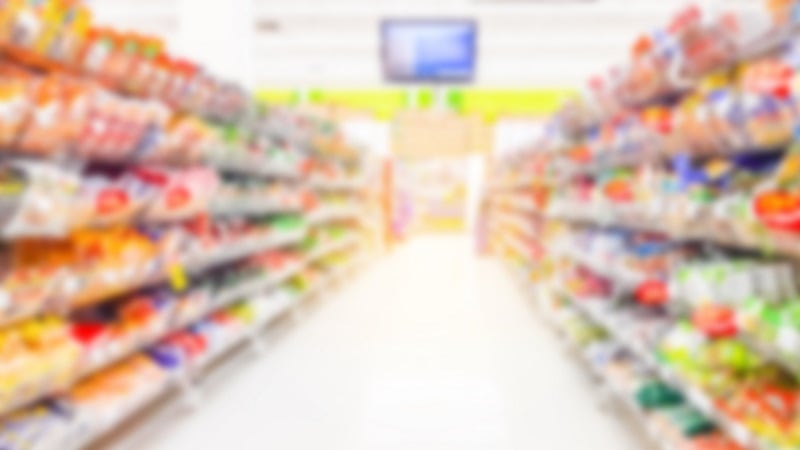Beginning in January, Nebraskans will no longer be able to use Supplemental Nutrition Assistance Program benefits to buy soda and energy drinks – a move that affects about 152,000 residents who rely on SNAP to pay for groceries and which could be the first of many similar state restrictions across the nation.
“There’s absolutely zero reason for taxpayers to be subsidizing purchases of soda and energy drinks. SNAP is about helping families in need get healthy food into their diets, but there is nothing nutritious about the junk we are removing with today’s waiver,” Nebraska Gov. Jim Pillen said in a statement May 19.
When his office submitted the waiver in early April it argued, “Studies have shown children who drink high levels of soda are more likely to exhibit withdrawn behavior and attention problems. High levels of sugar can also lead to long-term effects such as type 2 diabetes, tooth decay, heart disease and poor bone health. Caffeine found in energy drinks also has negative effects in children and youth, including increases in stress, anxiety, agitation, sleep disturbance and high blood pressure, often leading to difficulties in learning and academic performance.”
Rollins said the move “is a historic step to Make America Healthy Again,” and aligns with her vision of states as “laboratories of innovation.”
Dozens of states explore SNAP restrictions
The first of its kind waiver could be the first of many.
Arkansas, Colorado, Kansas, Indiana, Iowa and West Virginia also submitted requests to Rollins to prohibit SNAP funds from covering soda and candy and, in one case, allow the use of funds to buy select hot foods, like rotisserie chicken.
Many more states have similar active legislation or governors who have expressed an interest in restricting SNAP funding for select products, and a handful have vetoed such efforts but could reintroduce them, according to Olivia Lucaine, policy manager with the Torrey Advisory Group.
“Discussions about what should be in SNAP have happened since the program was enacted with the Food Stamp Act. We have seen specific items, like cake mix or lobster or hot dogs, to broad categories, like nutritionally dense or categories that align with the dietary guidelines” called out for exclusion or exclusive inclusion under SNAP, she explained at the DC chapter of IFT’s Food Policy Impact 2025 event April 29.
“We are seeing so many states coordinating, and in the past, I could count on one hand the amount of states that submitted a waiver,” she said, noting that as of her presentation she was watching 24, mostly red, states requests waivers to restrict SNAP purchases of “junk,” like soda, candy and snacks, or allow only broad categories, like produce or meat and poultry, and restrict everything else.
Historically, USDA has rejected waivers to restrict SNAP spending because it places the agency in a “sticky situation, choosing what foods are in and out of such a large program,” Lucaine said.
This time, however, Rollins has been vocal in her support to “take junk out of SNAP,” she added.
Industry pushes back, warns of ‘disruptions’ in stores where waivers go into effect
Trade groups representing the targeted foods and beverages and retailers have pushed back against the waivers – arguing that it will not result in the intended outcome but rather create unintended consequences.
“Historically, grocers have wholeheartedly opposed SNAP restrictions. We have never felt that this was a good intervention, and it is very, very complicated for grocers to do the implementation,” said Stephanie Johnson, group vice president of government relations for the National Grocers Association.
She explained at the Food Policy Impact event in DC that food and beverage manufacturers have innovated to create products that meet consumer needs and, in doing so, blurred the line of traditional categories.
Soda, for example, could be high in sugar and calories, or have zero calories, zero sugar and be fortified with nutrients of desire. Which of these are prohibited under waivers that simply say “soda,” but offer no clear definition?
“Saying ‘unhealthy drinks’ is not going to cut it for” grocers that will have to implement these changes, she explained.
“What they are really asking for is a list – a list of foods that are in and out with UPC codes and enough description that they can determine which of their local and international products are in and out as well,” she said.
Johnson also warned that ambiguous waivers will place store employees in a difficult, and perhaps dangerous, situation.
“The cashier becomes the food police. We are going to see disagreements at the front end. We are going to see volatility at the front end. I don’t know if you have been to a grocery since the pandemic, but people are not as nice as they used to be. Unfortunately, they are not willing to work with each other, and so I think we are going to see a lot of disruptions in this place, and they are also going to be frustrated that they can’t buy what they used to buy anymore,” she added.



